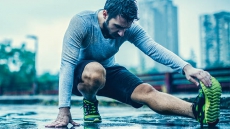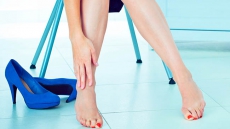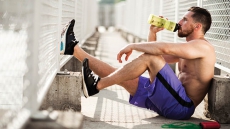Sure, engaging in physical activities has well-documented health benefits. But time and again, researchers have consistently highlighted additional advantages. Beyond improving mood and instilling discipline while reducing stress, studies have also identified a correlation between physical activity and loneliness. Various forms of exercise, such as swimming, gym workouts, yoga, or Pilates, have significantly alleviated feelings of severe loneliness and social isolation.
Moreover, these benefits are not just temporary; they also have long-term implications. Investing your time and money in activities you can sustain over time helps you maintain fitness and provides support during lonely periods. We spoke to a few women whose lives have changed with the help of physical activity....
'Doing yoga makes me feel less alone'
Vidya Prabhu, a 47-year-old woman, has a beautiful family. However, with her husband frequently away for work and her daughter busy with college, there were moments when she felt lonely. "We tend to depend on others when we're lonely. Of course, it's great to have people to hang out with when you feel isolated. But not every day is your lucky day. There are times when everyone is busy with their stuff, and it isn't fair to put that pressure on someone else. Over the last few years, I've taken to yoga. I do a mix of in-person and online yoga classes as part of my daily routine... it not only boosts my mental health, but I've also reduced my dependence on others, and this one-and-a-half-hour activity makes me feel rejuvenated and less alone," she says.
Workout, sleep well, feel less isolated
Recent research suggests that loneliness may be linked to poor sleep quality and insomnia. However, the effects don't stop there. It can affect daytime functioning, which might, in turn, increase your sense of isolation. Neelam Ravi, a 60-year-old teacher, has found a way to deal with this. "After retirement, you suddenly feel you have a lot of time. While we always say there's so little time but so much to do, there have been days when I felt 'What else can I do with this much time?'. While I have always been into fitness, even when I was working, I felt the need to stay consistent, especially during this time," says Neelam. "I do a mix of jogging and walking. Engaging in physical activities, to whatever extent I can, makes me feel tired and helps me go to bed early. I finish my morning chores, read, do grocery runs, and have lunch, and in the evenings, I head outside for a walk or jog. Once I am home, I make a quick dinner and head straight to bed. This way, I hardly feel 'lonely.' Imagine if there was nothing to do in the evenings?" she asks.
Getting out for a workout makes me feel less alone
For a few others, engaging in outdoor physical activities soothes the dull ache of loneliness. Fifty-three-year-old Nandini Reddy copes by going out for a swim. "Getting out of my home reminds me that I am not alone in the world," she smiles. "I chose to stay single and am happy with that decision. But just like how loneliness hits everyone at some stage, I do have those moments. However, those few hours of swimming make me snap out of it like no other activity. I am sure this is a cliché, but I feel refreshed after a swim."

I workout during the time period when I feel lonely
Radhika Arun has identified a specific time period during which she feels most lonely and has chosen to engage in physical activity during that time. "In the mornings, I always have something to do, such as grocery shopping or meeting a friend in the evenings. It's during the mid-mornings that I feel the loneliest. So, I decided to schedule my gym session for that time. Fortunately, I usually have the entire gym (or close to it) to myself because hardly any people are working out at that hour. With its fantastic view, those few hours alone at the gym are the best. Once I return home, I resume my routine, and then the day ends," she explains.
These stories highlight the transformative power of physical activity in combating loneliness. Whether it's through yoga, jogging, swimming, or hitting the gym, individuals have found solace and companionship in their exercise routines. As research continues to emphasize the link between physical activity and mental well-being, it's clear that dedicating time to sweat it out strengthens the body and nourishes the soul. So, the next time you feel lonely, consider lacing up your sneakers or rolling out your yoga mat. You might just find that the path to solace is paved with sweat and endorphins.





